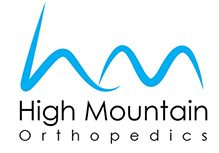Shoulder Impingement Syndrome
Many shoulder impingement conditions can be treated through conservative methods, but some may require surgery to effectively relieve pain and restore function to the joint. Your doctor will decide which type of treatment is best for you after a thorough evaluation of your condition. Contact Us TodayShoulder Impingement Syndrome in Wayne, NJ
Shoulder impingement syndrome occurs when your rotator cuff is pinched by the bones in your shoulder. This is often the result of general wear and tear, repetitive strain injuries, and other ailments. The medical professionals at High Mountain Orthopedics provide treatment options for shoulder impingement and other joint conditions. Serving patients in Wayne, NJ, our board-certified specialists provide thorough examinations to develop customized treatment plans tailored to individual needs.
Understanding Shoulder Impingement Syndrome
A shoulder impingement affects the top part of the outer edge of the shoulder blade, also known as the acromion. It occurs when the acromion impinges on, or pinches, the rotator cuff. The rotator cuff is a group of muscles located in the small space between the acromion and the humerus, making it highly susceptible to this condition. This pinching is what causes the pain and discomfort experienced by our patients. If you’re experiencing one or more of the following symptoms, shoulder impingement could be the cause:
- Aches and pains that affect your ability to sleep
- Difficulty lifting and lowering your arm
- Inability to lie on the affected side
- Radiating pain that runs from your shoulder to the side of your arm
- Pain when extending your arms above your head
- Stiffness when reaching behind your arm
- Stiffness/weakness in the shoulder and arm
- Tenderness or pain in the shoulder area
This condition is common for athletes and other active individuals who perform frequent overhead motions, such as those for swimming, tennis, and painting. Some of the most common causes for shoulder impingement include the following:
- Bone spurs have developed on your acromion
- Inflamed and irritated bursa (the fluid-filled sac between the acromion and tendon)
- Torn or swollen shoulder tendon
At High Mountain Orthopedics, our team is well-versed in this condition and its treatments. We can help you better understand the root cause of your pain.
When to Consider Shoulder Surgery
If left untreated, more serious complications may develop as a result. Patients who think they may have this condition should promptly seek medical care. Our experienced team of specialists will explore non-invasive solutions with you before considering surgery, such as:
- Over-the-counter (OTC) medications
- Prescription-strength anti-inflammatory medications
- Stretches and gentle exercises
- Ice therapy
When diagnosing a shoulder impingement syndrome, your doctor will check your range of motion as part of a physical examination as well as your medical history. An X-ray may also be used to rule out the possibility of arthritis, and an MRI would then be used to find rotator cuff tears and possible inflammation in the bursa.
If non-surgical options are successful in reducing the pain and inflammation in your shoulder, you may need to consider surgical options. Arthroscopic surgery may be performed to help pinpoint the damaged area. Afterward, shoulder surgery is performed to repair the damage and restore the functionality of the joint. Physical therapy may also be recommended during recovery to accelerate the healing process and restore strength and range of motion to your shoulder.
Consult Our Orthopedic Specialists Today
Shoulder impingement causes pain that disrupts your ability to sleep and makes basic day-to-day tasks difficult to accomplish. At High Mountain Orthopedics, we offer surgical and non-surgical treatments for patients throughout Wayne, NJ. Schedule an office or telemedicine appointment with us today and get on the road to recovery.
Schedule An Appointment Today!
If you or someone you know is in pain, we can help. Take the first step and schedule an appointment.

